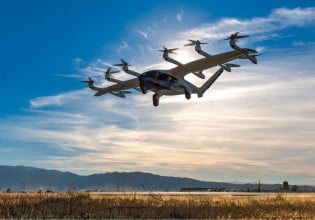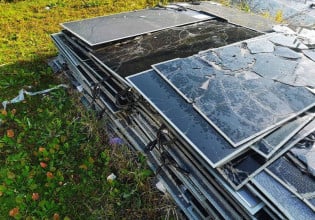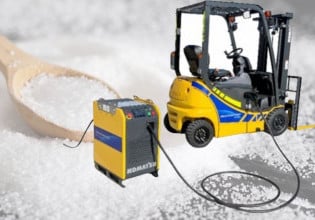SFC Fuel Cells Unveils CHP (Combined Heat and Power) Concept for Electric Vehicles
SFC Fuel Cells and ESG Elektroniksystem- und Logistik-GmbH, an automotive engineering partner of the German and international automotive industry, are demonstrating what they describe as an innovative power supply concept for electric vehicle. With the on-board CHP (Combined Heat and Power) concept, customer acceptance, range, and winter performance of battery powered vehicles can be significantly improved. Intelligently dimensioned fuel cells automatically recharge the battery when required, while at the same time producing heat for battery conditioning and heating purposes, thus ensuring highest functionality and comfort even in winter.
"This concept represents a quantum leap for battery vehicles", says Dr. Peter Podesser, CEO of SFC. "In winter, powering vehicles by batteries alone has not been a convincing solution for many users: the performance of a cold battery is insufficient, while at the same time power demand is dramatically increased by heating requirements. We offer a worthwhile solution to this problem by intelligently combining battery and fuel cell in a hybrid system. In addition, we enable fully automatic recharging independent of the power grid, thus freeing the customer from the ever present fear of not finding a power outlet when needed."
"The fuel cell as a range extender supplies power and heat simultaneously. Our experience with latest e-mobility projects clearly shows that both kinds of energy are essential for electrical vehicles. Our concept and integration expertise at ESG enable us to create integrated solutions that make optimum use of heat and electrical energy. In this way, energy management and operating strategy will adapt to the individual situation and user", says Wolfgang Sczygiol, Head of the Automotive Business Unit and Member of the ESG Management Board.
CHP (Combined Heat and Power) in electric vehicles is the simultaneous generation of electric power and useable heat for heating or battery conditioning purposes. According to the companies, the advantage of CHP is an increased range, as power is produced directly on board - when driving, idling or parking - and fed into the battery. This process is said to ensure the availability of sufficient power for all the vehicle’s security and comfort functions. Full integration, including thermal coupling, between battery and fuel cell creates suitable conditions for the electrical vehicles optimum function even after having been parked outside in winter. It is claimed that, in combination with modern battery management systems, surprisingly low nominal power is sufficient for the fuel cell to achieve a significant increase of range and vehicle performance.






